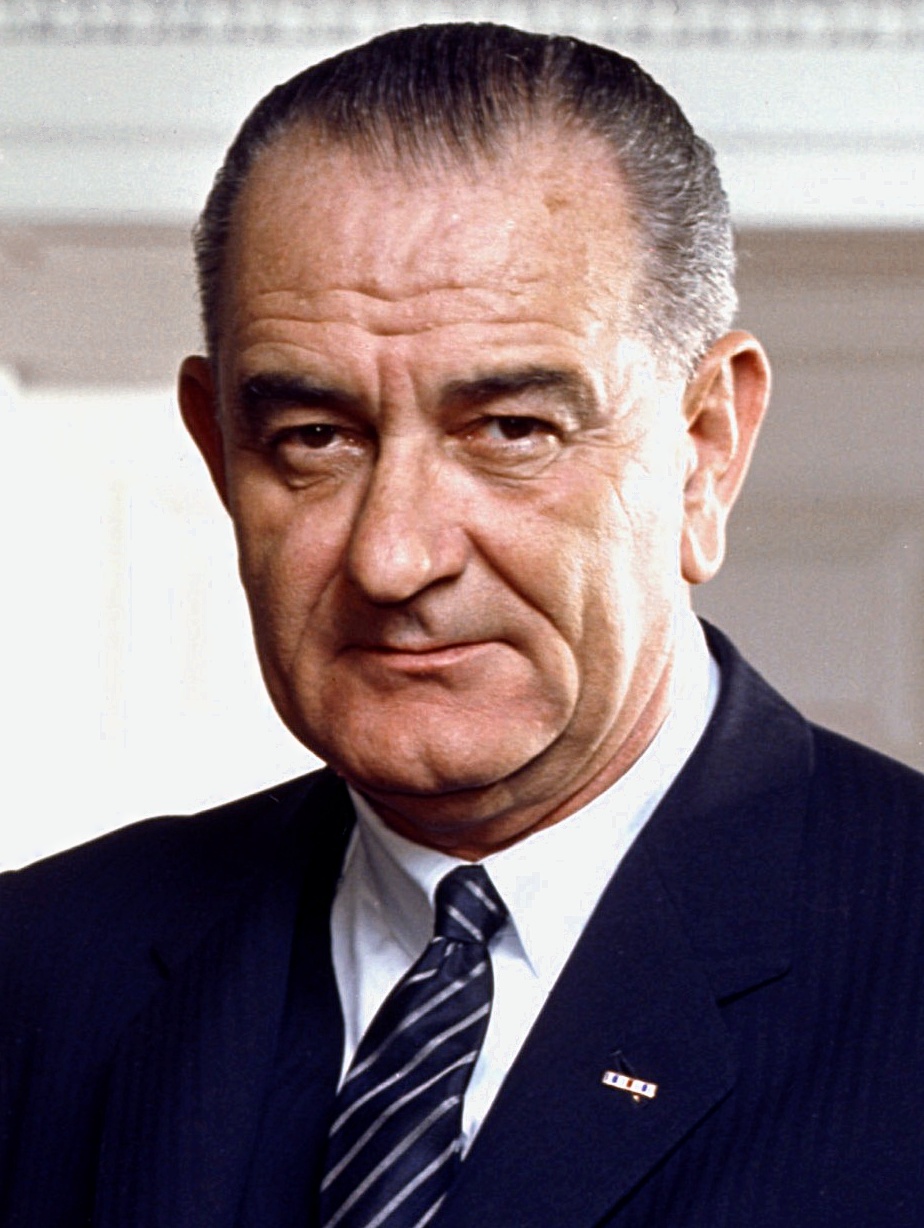gegen Ende seiner Amtszeit und vor dem Hintergrund des schleppend verlaufenden Vietnamkrieges; Der Spiegel: Ich lebe http://www.spiegel.de/spiegel/print/d-45849661.html, Heftsausgabe vom 20. Januar 1969
Zugeschrieben
Lyndon Baines Johnson Zitate und Sprüche
Lyndon Baines Johnson: Zitate auf Englisch
1960s, Remarks on the Civil Rights Act (1968)
1960s, Letter to Ho Chi Minh (1967)
1960s, Letter to Ho Chi Minh (1967)
1960s, The American Promise (1965)
1960s, The American Promise (1965)
1960s, State of the Union Address (1966)
Special message to the Congress on the nation's cities (March 2, 1965); reported in Public Papers of the Presidents of the United States: Lyndon B. Johnson, 1965, book 1, p. 240.
1960s
1960s, Statement on the Freedom of Information Act (1966)
Remarks at a Meeting of the National Alliance of Businessmen (16 March 1968). http://www.presidency.ucsb.edu/ws/?pid=28740
1960s
1960s, Special message to Congress on the right to vote (1965)
LBJ in the Commencement Address at Howard University http://www.pbs.org/wgbh/amex/eyesontheprize/sources/ps_bakke.html on June 4, 1965 on affirmative action.
1960s
1960s, Memorial Day speech (1963)
“When anyone says he’s a country boy, put your hand on your wallet.”
While Lyndon Johnson is reported to have said this (or a variation), it was not original to him. See barrypopik.com http://www.barrypopik.com/index.php/new_york_city/entry/when_anyone_says_hes_a_country_boy_you_better_put_your_hand_on_your_wallet and Texas, A Modern History: Revised Edition https://books.google.com/books?id=WQNo7e3jjysC&pg=PA215#v=onepage&q&f=false.
Misattributed
1960s, State of the Union Address (1966)
1960s, Voting Rights Act signing speech (1965)
1960s, State of the Union Address (1966)
"Transcript of Television and Radio Interview Conducted by Representatives of Major Broadcast Services.," http://www.presidency.ucsb.edu/ws/index.php?pid=26108 March 15, 1964. Online by Gerhard Peters and John T. Woolley, The American Presidency Project.
1960s
1960s, The American Promise (1965)
1960s, Letter to Ho Chi Minh (1967)
1960s, The American Promise (1965)
1960s, Remarks at the signing of the Immigration Bill (1965)
1960s, State of the Union Address (1966)
Statement (17 November 1967), as quoted in Vietnam: A Television History (1983) "Homefront USA" http://www.pbs.org/wgbh/amex/vietnam/series/pt_10.html
1960s
Report on the Gulf of Tonkin Incident https://www.youtube.com/watch?v=Dx8-ffiYyzA (4 August 1964)
1960s
Speech in Austin, Texas http://www.arenajunkies.com/topic/190562-best-and-worst-president-of-the-century/page__st__20 (22 May 1948), as quoted in Quotations from Chairman LBJ http://www.arenajunkies.com/topic/190562-best-and-worst-president-of-the-century/page__st__20 (1968), New York: Simon and Schuster.
1940s
1960s, State of the Union Address (1966)
1960s, Inaugural address (1965)
Private comment, as quoted in Name-Dropping (1999) by John Kenneth Galbraith, p. 149.
